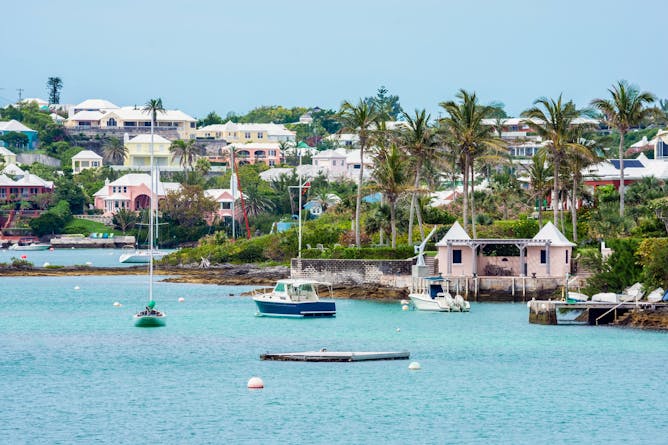|
The tax secrets of hundreds of politicians, multinationals and high net worth individuals – including Apple and Nike – have been leaked in what has been dubbed the “Paradise Papers”. Unlike last year’s Panama Papers revelations, the leak reveals the goings on of the offshore world’s highly-regulated elite locations like Bermuda and the Cayman Islands. Tax havens expert Ronen Palan outlines the key findings.
For many years the state of Mato Grosso, in western Brazil, was known for chopping down its rainforests to make way for huge farms. But now a boom in hydroelectric power has created a new environmental threat. Much of the region’s rainwater passes through the Pantanal, a swampy area that is packed with wildlife. Lauren Crabb and others report on how dams threaten to disrupt the vast wetland’s natural rhythm.
The average global temperature between January to September this year was roughly 1.1℃ warmer than the pre-industrial average. This means that 2017 will be among the hottest years on record for the globe, a fact that’s been confirmed by the World Meteorological Organization. Andrew King and David Karoly explain what has prompted such high temperatures, especially in a non-El Nino year.
|

Trouble in paradise: Bermuda is at the centre of the Paradise Papers leak.
shutterstock.com
Ronen Palan, City, University of London
Unlike the Panama Papers, the latest leak shines a light on the elites of the offshore world.
|
Environment + Energy
|
-
Lauren Crabb, Coventry University; Anna Laing, University of Sussex; Bronwen Whitney, Northumbria University, Newcastle; Carlos Saito, University of Brasilia
The region relies on seasonal flooding, yet energy demand is year-round.
-
Andrew King, University of Melbourne; David Karoly, University of Melbourne
This year is poised to go down as the hottest non-El Niño year ever recorded, with record low polar ice and extreme weather that left many regions battling bushfires and hurricanes.
|
|
Politics + Society
|
-
John Heathershaw, University of Exeter
With several terror attacks committed by Uzbeks abroad in 2017, one of the world's harshest regimes is coming under scrutiny.
|
|
Science + Technology
|
-
Jonti Horner, University of Southern Queensland
The mystery object seen moving through our Solar system shows the void between the stars is far from empty. So can we expect more interstellar visitors?
-
Tania Douglas, University of Cape Town
African countries need to start producing and developing their own medical devices. Suitably skilled biomedical engineers are needed for this sort of innovation to take root.
|
|